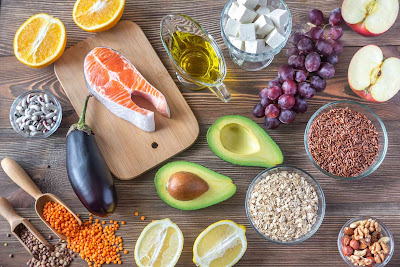If you are following a Plant Based way of eating, then you can get more than enough Calcium from your food.
Food Sources of Calcium for Vegans:
There are many plant-based sources of calcium, including certain
leafy green vegetables, broccoli, tofu, tempeh, tahini, almonds,
black beans, vegetarian baked beans, oranges, seeds, and
blackstrap molasses. Vegans can also choose calcium-fortified foods
like fruit juices, energy bars, and plant milks.
The calcium content of foods varies by brand and depends on
processing. For example, tofu is an excellent source of calcium when
a calcium salt (e.g. calcium sulfate) is used to coagulate or “set”
the tofu. Likewise, while blackstrap molasses is a good source of
calcium, regular molasses is not.
Factors Affecting Calcium Absorption
Oxalates, compounds found in some leafy green vegetables, can
inhibit absorption of calcium. Beet greens, Swiss chard, rhubarb,
and spinach are high in calcium but also high in oxalates. Therefore,
they should not be relied upon for meeting calcium needs. The
calcium in other leafy greens, such as collards, kale, and mustard
greens, is very well absorbed.
Vegans who consume a higher protein diet may also reduce their
risk for bone fracture. Meat analogues and legumes have been
shown to have a protective effect on bones. Other higher protein
plant foods like beans and soy foods contain important amino acids
for bone health.
Sample Menu Providing
1000 mg of Calcium
Breakfast
• ½ sesame seed bagel (80mg) with 2
Tablespoons almond butter (80mg)
• 1 navel orange (80mg)
• 8 oz calcium-fortified almond milk (450mg)
Lunch
• 2 slices whole wheat bread (100mg),
¼ cup
hummus (15mg),
2 slices tomato (5mg)
¼
cup sliced cucumber (5mg)
• Banana (5mg)
Snack
• Apple (10mg) with 2 Tbsp peanut butter
(20mg)
Dinner
• Stir fried vegetables:
½ cup tempeh (90mg),
½ cup broccoli (30mg),
½ cup carrots (20mg)
• 1 Tbsp sesame seeds (90mg)
• 1 cup brown rice (5mg)
Snack
• ½ cup frozen non-dairy dessert (0mg) with
1 cup sliced peaches (10mg)
It is always best to get your nutrients from Whole Foods rather than a supplement














